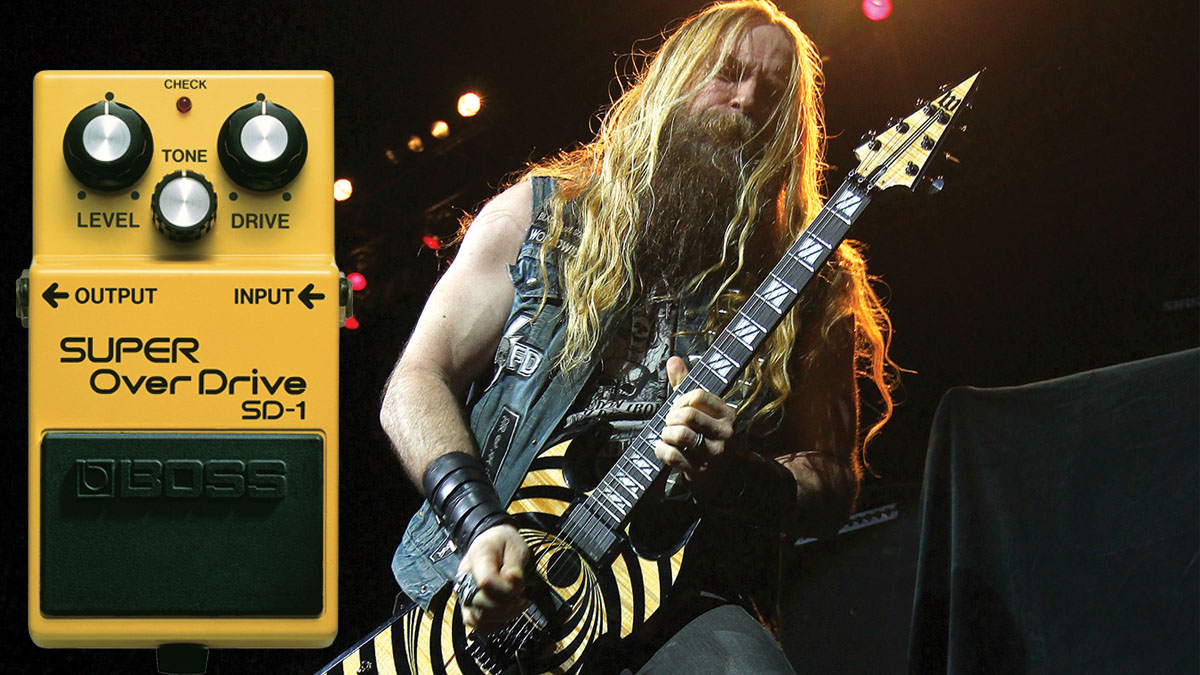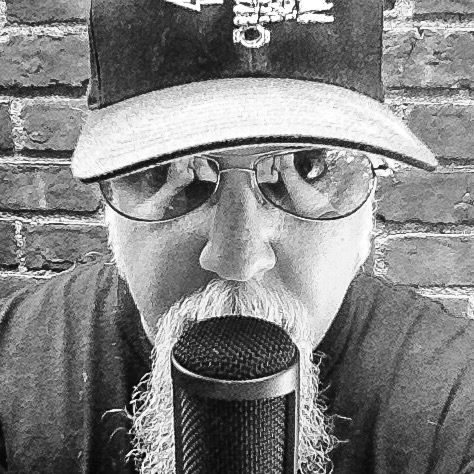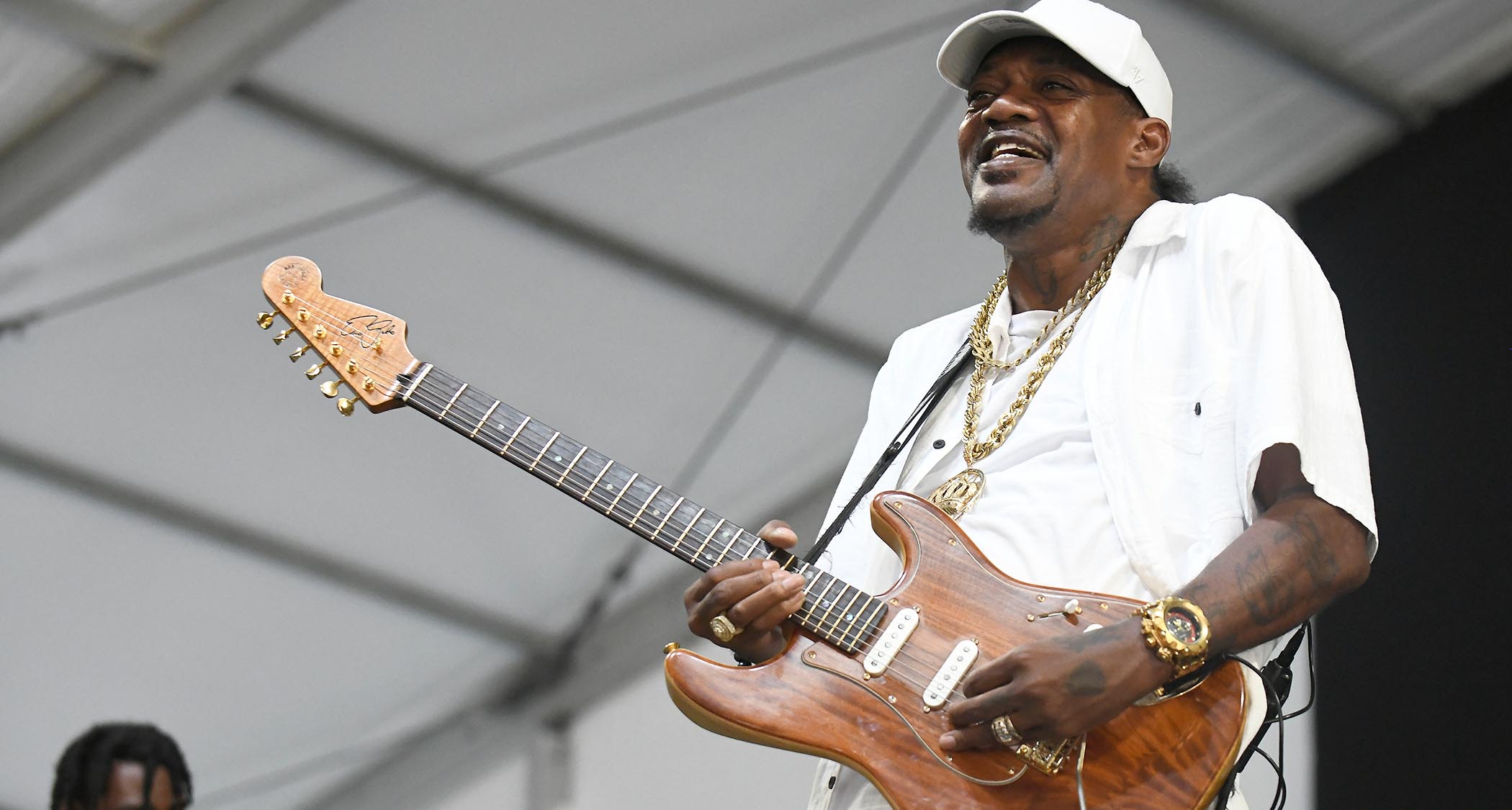Decoding the magic of the Boss SD-1 Super Overdrive, the drive pedal of choice for Zakk Wylde and Josh Homme
The classic overdrive was launched in ’81 and soon found its way onto the pedalboards of millions of players – including legions of pros

All the latest guitar news, interviews, lessons, reviews, deals and more, direct to your inbox!
You are now subscribed
Your newsletter sign-up was successful
Boss introduced the SD-1 Super Overdrive pedal way back in 1981. Since then, the SD-1 has remained in continuous production, selling literally millions of units and consistently enjoying status as a top-selling pedal for several decades, not just within Boss sales but in general overall pedal sales as well.
The reasons for its success are pretty simple: it’s inexpensive (brand-new ones sell for less than $70); it’s incredibly sturdy and reliable; and it just sounds good. Thanks to the SD-1’s long history and incredible success, there’s a very good chance that most guitarists reading this article already own or have owned one.
Boss developed the SD-1 as an improved version of the OD-1 Overdrive by adding a tone control and making a few tweaks to the circuit. Tone snobs can wax poetic about how certain component changes over the years have affected its tone, but the truth is a new SD-1 doesn’t sound dramatically different from an original early ’80s model, and many players may actually prefer the nuances of newer units.
The key to the distinctive overdrive tones of these Boss overdrive circuits is asymmetrical clipping, which is the result of when a signal’s waveform has positive and negative amplitude peaks that are clipped unevenly, in the SD-1’s case using a different number of diodes to clip the positive and negative peaks respectively. The end result is similar to the overdrive produced by a tube amp’s push/pull circuit as no two tubes are really ever matched 100 percent.
Asymmetrical clipping produces both even and odd harmonics, resulting in harmonically rich distortion that sounds layered. The SD-1’s biggest competitor, the Ibanez Tube Screamer, uses symmetrical clipping, which produces only odd harmonics and sounds warmer, more focused and compressed.
One isn’t necessarily better than the other, and both have their individual advantages, but ironically the overdrive characteristics of an SD-1 are closer to an actual tube amp than those of a Tube Screamer (although there’s more to tube amp overdrive than asymmetrical clipping).
• Josh Homme “Treble Booster”
Level: 10, Tone: 10, Drive: 0
Tip: Josh has used the SD-1 with a vintage Ampeg amp with a distinctive midrange peak along with a Boss GE-7 graphic EQ to further boost 400Hz. This SD-1 setting adds sizzle and clarity to his thick-as-molasses midrange.
• Zakk Wylde Solo
Level: 6.5, Tone: 5, Drive: 6.5
Tip: Active humbuckers like EMGs and a Marshall JCM800 with the gain cranked deliver aggressive, explosive lead tones with excellent clarity and singing sustain.
Science and technology aside, the SD-1 just sounds pretty damn good paired with a wide variety of amps, including various Marshalls (an SD-1 and JCM800 is a famous combo), Fenders, Voxes and even the latest boutique models.
All the latest guitar news, interviews, lessons, reviews, deals and more, direct to your inbox!
The pedal’s list of users is huge, but it is probably best known for its impact on hard rock and metal guitar during the ’80s, with notable examples including Ozzy’s post-Randy Rhoads players Zakk Wylde and Jake E. Lee, Kirk Hammett during Metallica’s Kill ’Em All days, Steve Vai, Jason Becker, Warren DeMartini, Reb Beach, Richie Sambora and even Prince.
The Edge has had an SD-1 on his ever-growing pedalboard since 1981, and it is a favorite of adventurous players like John Frusciante, Jonny Greenwood, Josh Homme, Robert Smith and Jack White to the more refined sounds of Lindsey Buckingham, Tommy Emmanuel, Mark Knopfler and Lee Ritenour. Billy Duffy and John Petrucci are new converts who use the more upscale Boss Waza Craft SD-1w.
Chris is the co-author of Eruption - Conversations with Eddie Van Halen. He is a 40-year music industry veteran who started at Boardwalk Entertainment (Joan Jett, Night Ranger) and Roland US before becoming a guitar journalist in 1991. He has interviewed more than 600 artists, written more than 1,400 product reviews and contributed to Jeff Beck’s Beck 01: Hot Rods and Rock & Roll and Eric Clapton’s Six String Stories.


